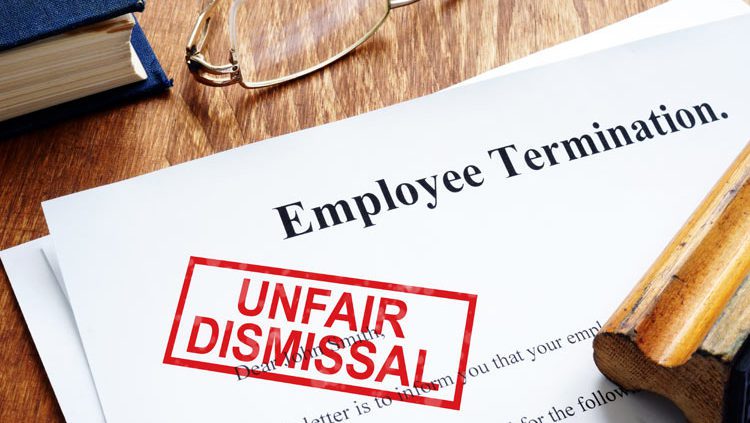Fair Work Commission backs zero tolerance out-of-hours intoxication - Australian Financial Review
By Alan J. McDonald

The Fair Work Commission is backing a strict zero-tolerance approach to alcohol after the sacking of an employee who attempted to attend work intoxicated.
McDonald Murholme Principal Lawyer Andrew Jewell discusses that intoxication in the workplace is an accepted category of serious and wilful misconduct.
Fair Work Commission backs zero tolerance out-of-hours intoxication – Australian Financial Review
The Fair Work Commission is backing a strict, zero-tolerance approach to alcohol in the oil and gas industry after upholding the sacking of a worker who returned to his workplace to sleep off a drunken night out.
Inco Ships, which provides re-fueling services for Viva Energy’s oil refinery in Geelong, dismissed crew member Sean Lewer after he arrived intoxicated at its wharf at 10pm and tried to press through security to return to his ship.
Mr Lewer had finished work earlier that day and left to go to a nearby hotel with a colleague, where he consumed “four to five” beers and pizza.
He then returned to the Port of Geelong, intending to sleep on board the ship and awake for his shift the next day.
But when security guards refused to let him in on grounds he was drunk he responded aggressively, attempting to remove a security officer’s safety glasses and threatening to jump the security gate.
Security eventually escorted Mr Lewer to a taxi to go home and he called in sick the next day, leaving the ship to sail short of one crew member.
Inco Ships later fired him for breaching its drug and alcohol policy, risking health and safety and behaving in an “aggressive and intimidatory manner”.
Mr Lewer said he was “deeply ashamed” of his conduct but argued it had been out of hours and he had never in fact entered the workplace.
Alcohol policy applies off duty
Commissioner David Gregory said it was “reasonable to expect” employer’s zero tolerance approach to alcohol at the workplace applied regardless of whether employees are on or off duty.
“The rationale for having a policy in place that provides that employees are not to access the refinery jetty or vessel after having consumed alcohol is the same in both circumstances,” he said.
“It is obviously designed to protect the individual, and to prevent them endangering others.”
It didn’t matter that Mr Lewer had not entered the workplace as “he had made it very clear over an extended period of time that this was his intention”.
He found a lesser penalty like a final warning would have sent a message that employees had “a second chance” if they intentionally breached health and safety policies.
The fact Mr Lewer had a young child and a partner on maternity leave also did not make the dismissal harsh.
“It is clearly unfortunate that Mr Lewer did not decide to go straight home when he concluded his shift at the Port of Geelong…. there does not appear to be anything that prevented him from doing so.”
‘Workplace doesn’t end at 5pm’
The decision follows a full bench ruling in October that overruled a finding that a captain in the oil and gas industry was harshly dismissed for drinking 10 beers the day before his shift.
McDonald Murholme principal employment lawyer Andrew Jewell said the decision was a sign of the commission’s increasingly hard line on safety issues.
He said the worker’s personal circumstances had given commissioner Gregory “the ability to find in his favour”.
“But he ultimately decided those personal circumstances didn’t make the dismissal harsh, unjust or unreasonable. It shows intoxication is an accepted category of serious and wilful misconduct.”
“It’s also a handy reminder for employees that the workplace extends beyond when you’re working and it’s particularly relevant at this time of year when there is a fair bit of work-related socialising”.
Reference: Fair Work Commission backs zero tolerance out-of-hours intoxication, Australian Financial Review, 18.12.17
-
 High Uni Fees but Academics Underpaid
High Uni Fees but Academics Underpaid -
 Reserve Bank interest rake hike and job losses
Reserve Bank interest rake hike and job losses -
 Labour shortages, inflation, recession looming and workplace disputes
Labour shortages, inflation, recession looming and workplace disputes -
 Paid family and domestic violence leave is to be introduced in Australia: here’s how it affects you
Paid family and domestic violence leave is to be introduced in Australia: here’s how it affects you -
 Virtual assistants; mumpreneurs’ secret weapon
Virtual assistants; mumpreneurs’ secret weapon -
 McDonald Murholme guide to the Fair Work Act – The Australian
McDonald Murholme guide to the Fair Work Act – The Australian